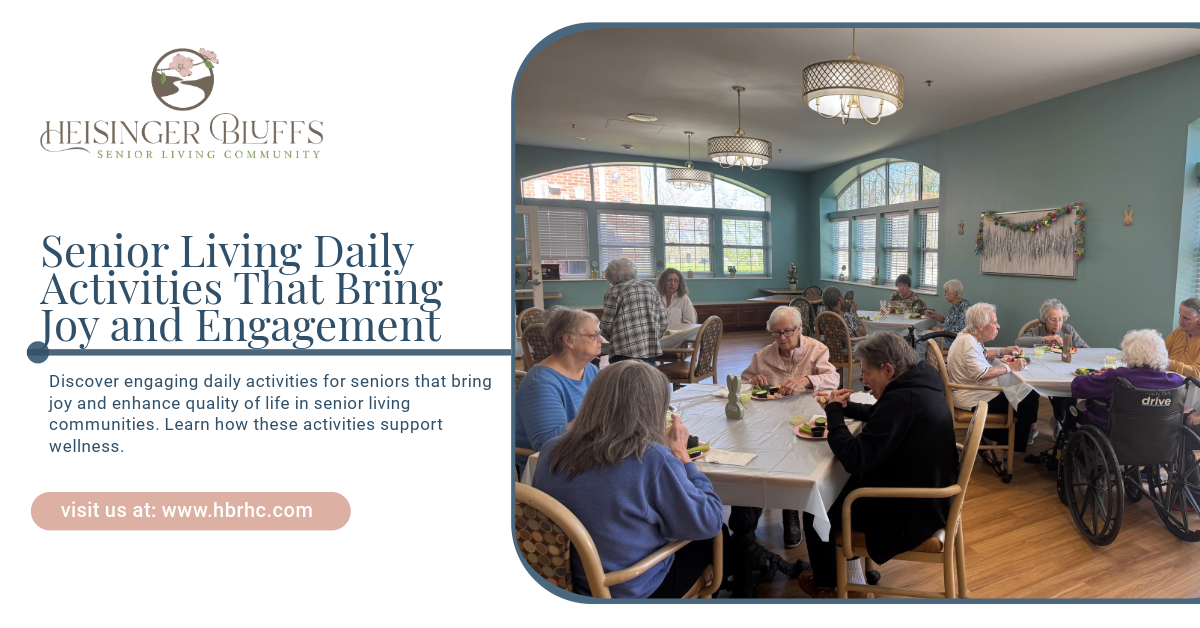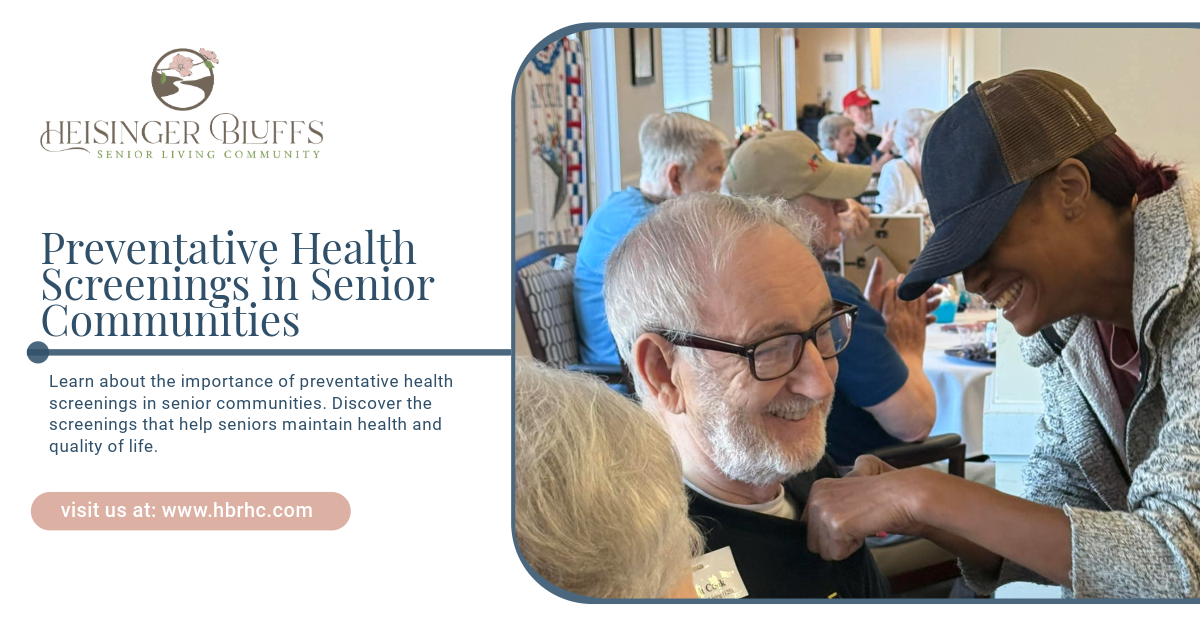How to Evaluate the Right Level of Care: Senior Living Edition

Finding the right level of care for an aging loved one can feel overwhelming. As needs change with age, determining whether your parent, spouse, or family member should remain at home, transition to independent living, or move into assisted or memory care requires thoughtful consideration.
Senior living isn’t one-size-fits-all. Every person ages differently, and the best solution depends on a combination of factors: physical health, cognitive ability, safety concerns, and personal preferences. Choosing the right level of care is about finding a supportive environment that allows your loved one to maintain dignity, independence, and quality of life.
In this guide, we’ll break down how to evaluate the right level of care, explore common senior living options, and help you make an informed decision with confidence.
Understanding the Different Levels of Senior Care
Before evaluating which level of care is right, it helps to understand what each option offers. Here’s a quick breakdown of the most common senior living options:
1. Independent Living
- Ideal for: Seniors who are active, mobile, and do not need daily medical or personal care
- Services: Housekeeping, meals, transportation, social activities
- Focus: Freedom and convenience with a community lifestyle
Independent living provides a maintenance-free lifestyle with access to a wide range of amenities, ideal for seniors who want to simplify life without giving up their independence.
2. Assisted Living
- Ideal for: Seniors who need help with activities of daily living (ADLs), such as bathing, dressing, or medication management
- Services: Personalized care, 24-hour support, meals, housekeeping, and social programming
- Focus: Safety and support while promoting autonomy
Assisted living offers a balance between independence and assistance, designed to help seniors continue to enjoy life while receiving the support they need.
3. Memory Care
- Ideal for: Seniors with Alzheimer’s, dementia, or other memory-related conditions
- Services: 24/7 supervision, cognitive therapies, structured routines
- Focus: Specialized care in a secure, nurturing environment
Memory care communities are staffed by professionals trained in dementia care and provide an environment tailored to the unique needs of memory-impaired residents.
4. Skilled Nursing or Nursing Homes
- Ideal for: Seniors with complex medical needs or chronic conditions requiring 24-hour medical care
- Services: On-site nurses, rehabilitation therapies, daily medical oversight
- Focus: Long-term health management
This level of care is typically for seniors recovering from a hospital stay or those who require full-time medical supervision.
Step-by-Step: How to Evaluate the Right Level of Care
Step 1: Assess Current Needs
Start by making an honest, comprehensive evaluation of your loved one’s current physical, emotional, and cognitive condition.
Ask yourself:
- Can they manage daily tasks independently?
- Are they remembering medications?
- Are they eating well and maintaining personal hygiene?
- Do they appear isolated, anxious, or withdrawn?
- Have they had any recent falls or accidents?
Keeping a daily log for a week or two can help you spot trends and areas of concern.
Step 2: Consult with Healthcare Providers
Talk to your loved one’s primary care doctor, geriatrician, or specialists to get a medical perspective. Ask for a functional assessment or wellness evaluation that focuses on:
- Physical mobility
- Cognitive function
- Mental health
- Chronic conditions
- Medication management
A professional evaluation can help clarify whether aging in place is still safe or if a more structured support environment is necessary.
Step 3: Involve Your Loved One in the Conversation
It’s important to include your loved one in these discussions. Change can be emotional, especially when it involves leaving a longtime home. Be patient, and focus on their feelings, preferences, and goals.
You can ask:
- What activities do you enjoy most during the day?
- Are there parts of the home you no longer use or struggle to maintain?
- Would it feel good to have more social interaction or assistance?
Empowering your loved one in the decision-making process leads to smoother transitions and more positive outcomes.
Signs It Might Be Time for a Higher Level of Care
Here are common signs that a loved one may need to move from independent to assisted living or from assisted living to memory care:
Declining Personal Hygiene
Neglecting grooming, wearing the same clothes repeatedly, or struggling with basic tasks like brushing teeth or combing hair.
Missed Medications
Forgetting or skipping medication doses can lead to serious health complications, especially for seniors with chronic conditions.
Safety Concerns
Frequent falls, wandering, or leaving appliances on unattended can indicate it's time for more structured supervision.
Social Withdrawal
Losing interest in hobbies, avoiding phone calls, or becoming increasingly isolated may signal emotional or cognitive decline.
Caregiver Burnout
If a family caregiver feels overwhelmed, exhausted, or unable to provide adequate support, it may be time to consider professional care options.
Choosing the Right Environment: What to Look For
When touring or researching senior living communities, consider the following factors to find the right fit:
1. Level of Care Offered
Make sure the community offers a continuum of care or has a clear pathway to transition into higher levels of support if needed in the future.
2. Staff-to-Resident Ratio
Ask about how many caregivers are available, especially during evenings and weekends. This directly impacts the quality and attentiveness of care.
3. Safety Features
Check for handrails, emergency call systems, grab bars in bathrooms, non-slip flooring, and secure entrances/exits.
4. Personalization of Care
Look for a community that creates individualized care plans based on residents’ preferences, medical needs, and routines.
5. Social and Wellness Programs
Meaningful social activities, fitness classes, educational programs, and spiritual opportunities all contribute to a resident’s quality of life.
Budgeting and Financial Considerations
Cost is a big factor in senior living decisions. Each level of care has different pricing models based on services and accommodations. Here’s how to prepare:
- Create a budget that includes monthly income, savings, and long-term care insurance (if applicable)
- Ask communities for a detailed breakdown of what’s included in the monthly fee
- Inquire about pricing flexibility, financial aid, or veterans' benefits
- Consider a community that offers various levels of care to avoid multiple relocations and added costs down the road
Planning early helps reduce stress and ensures affordability.
When to Re-Evaluate Care Needs
Even after choosing the right level of care, things can change. It's wise to re-evaluate your loved one’s needs every 6 to 12 months or after any significant health event. Warning signs that might prompt re-evaluation include:
- Rapid weight loss
- Confusion or memory lapses
- Increased agitation or anxiety
- Incontinence or mobility decline
- Care needs exceeding what the current community can provide
A smooth transition to a higher level of care is possible with proactive communication and planning.
Tips for Making the Transition Easier
Once you’ve selected the right level of care, here are ways to help ease the transition:
- Downsize thoughtfully: Help your loved one bring familiar items, photos, and decorations to make their new home feel comfortable
- Stay involved: Visit regularly, attend community events, and get to know the staff
- Be patient: Adjusting takes time—emotional support and consistency go a long way
- Celebrate the positives: Focus on newfound opportunities for socializing, safety, and support
A thoughtful transition can transform a potentially stressful experience into a new chapter of comfort and connection.
At Heisinger Bluffs, we offer a full spectrum of senior living options tailored to meet the changing needs of older adults. Whether your loved one thrives in independent living or requires the added support of assisted or memory care, our compassionate team is here to guide your family every step of the way. Let us help you find the level of care that brings confidence, safety, and peace of mind.
FAQs
How do I know if my parent needs assisted living or just home care?
If your parent needs occasional help but can still function independently, home care might work. But if daily assistance, medication reminders, or safety are concerns, assisted living may be the better choice.
Can my loved one move from assisted living to memory care if needed?
Yes. Many senior living communities offer a continuum of care, allowing residents to transition smoothly as their needs change.
How do I talk to my loved one about moving into senior living?
Start the conversation early, focus on their comfort and safety, and listen to their feelings. Involve them in tours and decisions to ease the emotional process.











